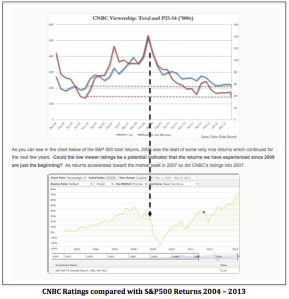After a financial crisis, how do you think about what comes next? How will your clients react and how can you help them? What are they feeling and why are they feeling that way? The Hartford Funds has partnered with the MIT Age Lab to study how the changing demographics of aging will impact consumer decision making, preferences, communication.
This article is a summary of a session from the Money Management Institute’s Fall Solutions Conference that was held in October 2013 in New York City. The presenter was John Diehl, Senior VP, Hartford Funds who spoke about his work at what Hartford calls the Masters of Advice Institute and specifically about a presentation he developed called Fear, Finance and the High Anxiety Client.
Diehl started by explaining that during a financial crisis, most clients will experience some combination of stress, fear, and\or anxiety. Studies have shown that people under stress experience tunnel vision, auditory exclusion, and a reduced capacity to learn. All of which make it harder for an advisor to communicate with them.
Feeling too relaxed about the market would also be a problem, such as during a bubble. This results in clients losing focus on the reality of the market and ignoring the pending down cycle. They think it can not happen.
Diehl commented that clients feeling stressed is not entirely bad, since it can lead to engagement. Concerned clients will often reach out to their financial advisors for more information.
How Anxiety Affects Clients
Anxiety can have a significant impact on client perception of the market, Diehl observed. As part of his work with MIT studying trust and advice in financial services, they identified three ways that anxiety can manifest itself in client’s minds:
- Meaninglessness – the system has lost any meaning
- Normlessness – the rules that used to apply to the markets are broken and do not apply anymore
- Powerlessness – there is little that I or anyone can do to influence outcomes
Diehl pointed out a correlation where increases in online searches for words related to anxiety in the US coincided with increased sales of anti-anxiety medication. Clients want to medicate themselves in order to reduce their anxiety. One way that advisors can help their clients reduce their anxiety level is to show them that they have power over their own future, he suggested.
There is evidence that people under stress will seek out negative information to reinforce their feelings. The chart on the right shows how the ratings of CNBC spike up after large drops in the market. This is due to clients investing attention in the negative in order to locate the source for their anxiety, he surmised. 
During a crisis, end investors feel that they are adrift in an angry sea. To circumvent clients’ feelings of powerlessness, they must be given small, yet concrete steps that they can take to begin controlling their own future, Diehl advised.
The Crisis Life Cycle
According to Diehl, a crisis\scandal\major issue will remain on American’s radar for an average of 30 days. The attention peak is after the preliminary assessment of blame. Once we know who’s fault it is, we immediately start to lose interest in the story, he stated.
He listed three reasons why all crisis will eventually pass:
- Exhaustion – people can’t run on red alert 24 x 7 x 365
- Solution – someone proposes a solution that everyone feels is acceptable
- Replacement – a new crisis arises to take its place
The 24/7 news cycle and access to endless news feeds via the Internet increase the risk of clients becoming desensitized. When the markets suffer a sever downturn, research has shown that around 90% of clients will go into shutdown mode in order to avoid the bad news, Diehl proposed.
It is important for an advisor to put every crisis into perspective, so their clients can better understand that similar events have happened before and that the markets always recover, he stated.
Advisors should base their value proposition on variables that they can control, such as service delivery and education as opposed to the movement of the market, over which they have none, Diehl recommended.
Loss Aversion
The average investor is more afraid of losing money than they are about finding opportunities to make money, Diehl claimed. He cited behavioral economists who have found that the pain of loss is 2-3x greater than the joy of a gain. This dichotomy continues even when an investor sees a chart that shows stock market returns back to 1926. There have been 33 years with a 20% gain or more and only 6 years with a 20% loss. They see the disparity but still are affected more by the losses, he pointed out.
Related WM Today Content
Which Financial Planning Software is Right For You?
Why Haven’t Advisors Embraced Unified Managed Accounts?
Top 10 Most Popular Posts from 2013

Great post, and I think stress testing can help advisors have meaningful conversations, especially around loss aversion. A press release just went out about Raymond James adopting the HiddenLevers stress testing toolkit: http://on.mktw.net/1f9IGNj
LikeLike
Joonas,
Thanks for your comment. It just so happens that I wrote an article on Hidden Levers last year (http://wp.me/pPor1-A8). Glad to hear that you guys are getting traction with larger IBD’s. My favorite part of your product is the impact scenarios. I’m sure you have added a bunch of new features since the last time I saw it. Maybe it’s time for another demo?
Best,
Craig
LikeLike